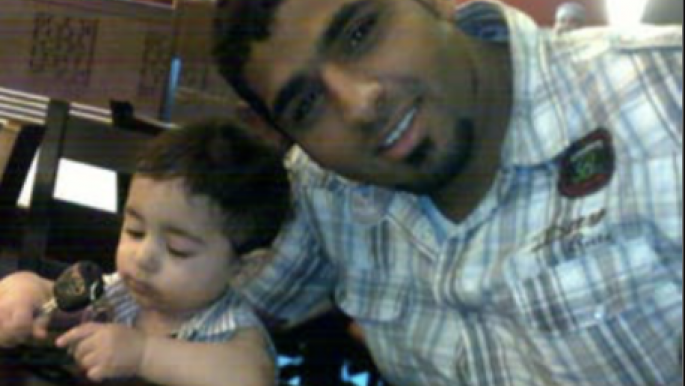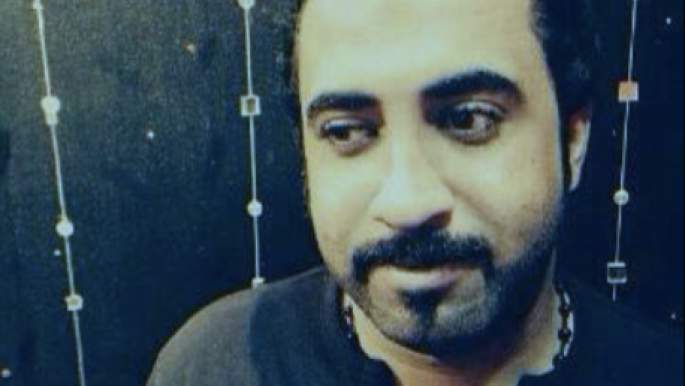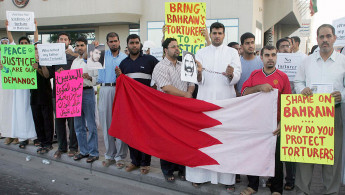UK urged to intervene in case of Bahraini pair facing execution after 'torture-induced confessions'
Britain's parliament on Wednesday discussed the impending trial of two men in Bahrain facing death sentences over evidence allegedy obtained by torture.
The Bahraini security officials who extracted the confessions were reportedly trained with the help of British funding.
The cases of Mohammed Ramadhan and Husain Moosa, who are due to appear before Bahrain’s most senior court on Monday, were brought to the House of Lords by Baroness D'Souza, a British scientist and life peer.
The Baroness questioned the Conservative government’s Minister for South Asia and the Commonwealth, Lord Ahmad of Wimbledon, on the UK government’s involvement in the case.
“Forced confessions were obtained under torture according to the International Rehabilitation Council for Torture Victims and other international bodies. The torture was carried out by two bahraini bodies which have received equipment and training from the UK,” Baroness D’Souza said via conference call.
“Will the government make the strongest and public representation to the Bahrain authorities to prevent the imminent execution of these two and other prisoners and will the minister commit to meet representatives from right groups before Monday?”
 |
| Mohamed Ramadhan was jailed in 2014 in Bahrain. |
Lord Ahmad responded that he will “look into'' meeting with rights groups, and responded to the Baroness by promising a continued “strong representation on all cases.”
“The Bahraini government is fully aware that the UK opposes the death penalty. Indeed, it was because of UK representation in this case that it went through to retrial and that was a first in Bahrain history in itself,” he added, citing the UK’s intervention in obtaining a case review for the two men before the final judgement was reached.
The UK government has provided over £6.5 million of technical assistance to Bahrain’s justice and security sectors since 2012, according to the Bahrain Institute for Human Rights and Democracy.
A number of Peers argued the Government has a duty to intervene in the case, to ensure that justice is done.
“By any objective legal judgement, Mohammed Ramadhan and Husain Moosa have not had due process,” said Baroness Ramsay.
“Why can’t the FCO put its mouth where British money is going and very vigorously obtain for these two men, at least now, a delay of execution and a fair trial?”
Lord Scriven added: “Given the failures of the SIU investigation into Mohammed and Husain’s torture identified by the International Rehabilitation Council for Torture Victims, will HMG finally accept that its technical assistance to Bahrain has failed to achieve its aims and objective and agree to suspend its provision of technical assistance to Bahrain if these men’s death sentences are upheld?”
Responding for the Government, Lord Ahmad would not commit to making representations on behalf of the men before the hearing, saying “it is for the Court of Cassation to make the final decision" and after that decision “we will review whether there is any exemption or clemency that remains an avenue to the King”. He defended UK technical assistance to Bahrain, saying that it has "yielded positive results”.
Ramadhan and Moosa did not get a retrial at which they could present fresh evidence as implied by Lord Ahmad, according to Reprieve, a nonprofit organisation of international lawyers and investigators. Instead, the rights group argues the case review did not thoroughly investigate, and failed to acknowledge the Bahraini authorities’ foul play.
 |
| Husain Moosa was also arrested in 2014 for attending a pro-democracy rally. |
"The Government continues to claim that British security assistance to Bahrain has 'yielded positive results,' yet next Monday, two Bahraini men are very likely to be sentenced to death on the basis of torture evidence, following a sham investigation into their mistreatment, supported by British taxpayers,” said Reprieve Director Maya Foa.
“Faced with evidence that UK support to Bahrain has failed and is a fig leaf for severe human rights violations and denial of due process, all Lord Ahmad said is that the Government continues to monitor the case. The time for monitoring is long past: it is time to intervene, to save these men's lives."
During Ramadhan and Moosa's appeal in 2019, Dr Agnes Callamard, UN Special Rapporteur on Executions also accused the Bahrain government of depriving the two men of a fair trial, saying there were “clear breaches” of their rights according to international law.
Due to these allegations rights groups Reprieve, BIRD, and IRCT recommend that the government “freeze all assistance to Bahraini security and justice bodies demonstrated to be engaged in torture and the death penalty.”
The two men were arrested during pro-democracy marches in 2014, and have been navigating the Bahraini legal system since then.
Ramadan and Moosa are both members of Bahrain’s Shia community, which has been the target of a brutal government crackdown since demonstrations in 2011 calling for democratic reforms in the Sunni-ruled kingdom.
As of July 2020, the death row count in Bahrain has reportedly risen to 26, according to data compiled by the Bahrain Institute for Human Rights and Democracy.
In July 2019, Bahrain executed two young men by firing squad after they were convicted of killing a police officer two years previously, despite campaigns by human rights groups and the UN, including its Special Rapporteur on extrajudicial, summary or arbitrary executions, Agnes Callamard.
Ali Mohamed Al-Arab, 25, and Ahmed Issa al-Malali, 24, were believed to have been forced to confess and to have faced an unfair trial.





 Follow the Middle East's top stories in English at The New Arab on Google News
Follow the Middle East's top stories in English at The New Arab on Google News
![The UAE is widely suspected of arming the RSF militia [Getty]](/sites/default/files/styles/image_330x185/public/2024-11/GettyImages-472529908.jpg?h=69f2b9d0&itok=Yauw3YTG)
![Netanyahu furiously denounced the ICC [Getty]](/sites/default/files/styles/image_330x185/public/2024-11/GettyImages-2169352575.jpg?h=199d8c1f&itok=-vRiruf5)
![Both Hamas and the Palestinian Authority welcomed the ICC arrest warrants [Getty]](/sites/default/files/styles/image_330x185/public/2024-11/GettyImages-2178351173.jpg?h=199d8c1f&itok=TV858iVg)